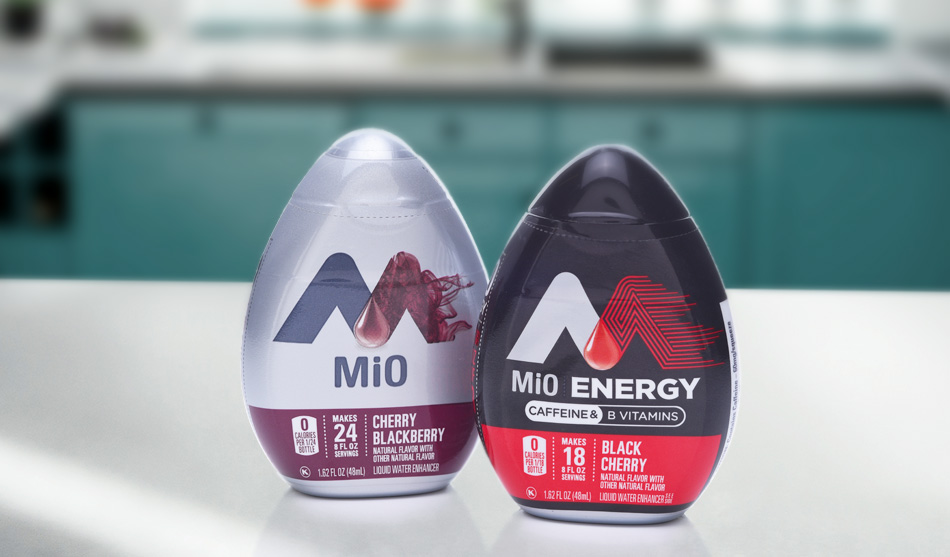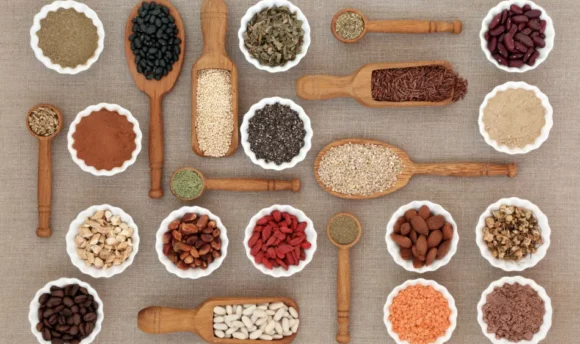Is MiO Healthy? Nutrition, Ingredients, and Side Effects
In recent years MiO has become a popular substitute for plain water. But, if you have never heard of MiO, you have come to the right place. This article discusses in detail its nutritional value, ingredients, and some side effects of consuming it.

You can find MiO, a calorie-free and sugarless water enhancer, on the shelves of most supermarkets. This product comes in several flavors, and all you have to do to enjoy a wonderful beverage is dilute a few drops in a glass of water.
MiO is undoubtedly advantageous if you dislike the taste of regular water and find it difficult to consume enough water throughout the day.
Drinking MiO-infused water can prevent dehydration. Dehydration happens when your body doesn’t have enough water and other fluids to perform its regular processes because you use or lose more fluid than you consume.
Dehydration will occur if lost fluids are not replaced. It can affect everyone, but it is particularly dangerous for small children and elderly people.
In addition, MiO could be a fantastic substitute if you frequently drink sugary drinks like sodas, juices, and other liquids with lots of natural sweeteners.
However, is MiO bad for your health?
Thank you for your answer
Health Reporter Surveys
What Is MiO?
MiO is a brand owned by Kraft Foods. It is often known as a liquid water enhancer. The MiO brand has four product lines: MiO Vitamins, MiO Original, MiO Sport, and MiO Energy. Each product has a variety of flavors in it.
A tiny amount (½tsp) of the concentrated liquid can be used to flavor an entire bottle of water. It is packaged in a small 1.52-ounce plastic bottle.
Is MiO Healthy?
As MiO mainly uses artificial sweeteners, it is not good for your health. The main artificial sweeteners found in MiO are sucralose and acesulfame potassium (ace-k).
There are still controversies going on if these two artificial sweeteners are harmful to our health. A study observed that acesulfame potassium causes weight gain in male mice and disrupts the gut microbiome.
Sucralose may also have mild mutagenesis risk, according to small rat research. A mutagenic substance may raise your body’s risk for cancer and DNA mutations.
However, long-term human research is required to apply these studies.
Using MiO is not necessary as there are still healthy and natural options available to enhance the flavor of your water. For example, some good ideas are lime, cucumber, herbs, ginger, etc.
MiO Liquid Ingredients
Caffeine
Except for MiO Energy products, the majority of MiO water enhancers are caffeine-free. However, each serving of MiO Energy contains about 60mg of caffeine.
Less than 2% taurine
Taurine plays a crucial role in your body’s metabolic processes and shares chemistry with other amino acids. Antioxidant qualities are thought to exist in taurine. While the evidence is mixed, some studies suggest that taurine supplementation may improve athletic performance.
Guarana and ginseng extracts
In Chinese medicine, ginseng has been used for many years as a herbal supplement. It is frequently acknowledged for its anti-inflammatory and antioxidant properties.
Additionally, it might lower blood sugar and be beneficial for some cancers. It should be noted that ginseng is not suggested for children, pregnant women, or breastfeeding mothers due to a lack of safety research.
For centuries, Amazonian tribes have used the popular ingredient guarana for its healing properties.
Guarana is frequently known for its capacity to improve memory and learning while boosting energy. Additionally, it has been connected to improved heart health, weight loss, pain alleviation, a lower risk of cancer, and a lower chance of age-related eye problems.
Vitamin B6 and B12
Pyridoxine, a form of vitamin B-6, is crucial for healthy immunological and neural systems as well as optimal brain development.
Whereas vitamin B-12 (cobalamin) is crucial for producing DNA, the molecules found inside cells that contain genetic information, as well as for red blood cell creation, cell metabolism, neuron function, and other processes.
Other ingredients
- Niacinamide: A kind of B3 vitamin is nicotinamide, often known as niacinamide. Niacinamide is necessary for sugars and fats to operate properly in the body and to keep cells healthy.
- Sucralose: Sucralose is an artificial sweetener with no calories. Splenda is the most popular product made from it. Sucralose is produced from sugar; however, it is considerably sweeter and has no calories.
- Acesulfame potassium: The component, also referred to as acesulfame K or Ace-K, is a calorie-free artificial sweetener that is present in sugar-free products. It leaves behind a bit of a bitter flavor. Due to this taste, it is frequently combined with sucralose.
- Red 40: A synthetic food color created from petroleum is called Red Dye 40.
- Yellow 5: Tartrazine is another name for Yellow 5 food coloring. This pigment, which has a vivid, lemon-yellow hue and is used in many foods and beverages, dissolves in water.
- Yellow 6: The most widely used orange-yellow coloring for sweets, sauces, baked goods, and preserved fruits is Yellow 6.
- Potassium sorbate: Potassium sorbate is a preservative used to keep unwanted molds and fungus away.
4 Side Effects of MiO Liquid
Though MiO doesn’t have any direct side effects, there are some primary ingredients present in this concentrated liquid that can have some side effects.
#1 Caffeine
One MiO product line, MiO Energy, contains caffeine. Each serving of MiO Energy contains about 60mg of caffeine. Be careful not to overdo it, especially at night, because the caffeine in MiO may prevent you from sleeping at all.
You get about 60mg of caffeine with one serving of MiO Energy. This makes it slightly stronger than black tea (48mg caffeine) but slightly weaker than freshly made coffee (96mg caffeine).
If you stick to the portion amounts, you can control how much caffeine you consume from MiO. You may, for instance, get twice as much caffeine if you add more. Be careful if you have caffeine sensitivity.
Studies show that consuming coffee may temporarily increase blood pressure, usually in those who already have hypertension.
#2 Contains food dyes
Chemicals called food dyes were created to improve the appearance of food by giving it artificial color. Artificial food colors are chemicals of petroleum origin that give food color.
There is still a debate over the safety of these colors, even though the Food and Drug Administration concluded that these do not cause considerable harm to human health.
Red 40, Yellow 5, and Yellow 6 are the food dyes used in MiO.
A 2015 investigation examined the impact of Yellow 5 (tartrazine) on human white blood cells. Although this food coloring didn’t harm white blood cells right away, scientists discovered that it did damage the cells’ DNA over time, leading to mutations in those cells.
These three dyes are known to cause an allergic response.
Food dyes are probably not harmful to the majority of individuals, although avoiding processed foods with dyes can help your health in general.
#3 Artificial sweeteners
Even though MiO water enhancers have no calories, fat, or sugar, they still contain artificial sweeteners like sucralose and acesulfame potassium.
A study found that Ace-K use in male mice over 40 weeks was connected to potential changes in brain function.
Initially, it was thought that artificial sweeteners did not affect blood sugar or insulin levels because they were not absorbed by the body. However, investigations on both humans and animals have now demonstrated that sucralose is partially digested and affects insulin and blood sugar levels.
Sucralose is regarded as safe by health authorities; however, studies have raised doubts on how it may affect your health. Its long-term health consequences remain unknown.
Although the Food and Drug Administration (FDA) considers artificial sweeteners safe, it is still recommended to speak to your doctor and consume it according to your health condition.
#4 Preservatives
Another preservative used in MiO that is approved by the FDA is sodium benzoate. Given that it is categorized as “Generally Recognized As Safe” (GRAS), experts believe it to be safe when used as intended.
However, the conversion of sodium benzoate to benzene, a recognized carcinogen, raises significant concerns about its use.
According to animal research, sodium benzoate consumption directly correlates with the body’s ability to activate inflammatory pathways. This involves inflammation encouraging the growth of cancer.
According to experiments conducted in test tubes, the number of free radicals produced increases with sodium benzoate concentration. Free radicals can harm your cells and raise your chances of developing chronic diseases.
Although certain people may be more sensitive, sodium benzoate is considered safe, and most people don’t go over the acceptable daily intake of 0–2.27mg per pound (0–5mg per kg) of body weight.
MiO Water Enhancer Nutrition Facts
Nutritional table (per 100g)
| Calories/Nutrient (per 100g) | Amount |
| Calories (kcal) | 0 |
| Sodium (mg) | 400 |
| Net Carbs (g) | 0 |
| Sugar (g) | 0 |
| Fats (Total) | 0 |
| Protein (g) | 0 |
| Niacin (mg) | 80 |
| Vitamin B-6 (mg) | 8 |
Source: https://fdc.nal.usda.gov/fdc-app.html#/food-details/1629336/nutrients
FAQs
Even though MiO is safe to consume, it shouldn’t be a replacement for plain water. It is neither good nor bad for your health.
Try to look for healthier liquid enhancers like lime, berries, cucumber, mint, etc., as they give you some nutritional value.
MiO does not contribute to weight gain because it is free of calories and sugar. In fact, drinking water infused with MiO may benefit you if you’re trying to lose weight because it keeps you hydrated without packing on extra calories.
Depending on the product line, MiO contains 10–75mg of sodium per squeeze. With only 10mg of sodium per serving, MiO Energy seems to have the least amount. The most sodium-rich product is MiO Sport, at 75mg per serving.
It might be safe to use MiO if you can afford to buy it frequently. Experts advise picking goods with stevia leaf extract because they are the healthiest and less likely to cause you any health issues if you want to stay healthy.
But always keep in mind that despite being free of sugar and calories, artificial sweeteners still have the potential to be harmful to your health, particularly if you already have certain illnesses like diabetes.
Therefore, take into account your dietary needs and general health before using MiO.
Four product lines are available under the MiO brand: MiO Vitamins, MiO Original, MiO Sport, and MiO Energy. Each product has a variety of flavors in it.
For example, MiO Energy flavors are Green Thunder, Strawberry Pineapple Smash, Tropical Fusion, Acai Berry Storm, Black Cherry, and Wicked Blue Citrus. And MiO Vitamins line has flavors like Orange Tangerine, Orange Vanilla, and Orchard Apple.
A Word From a Nutritionist
Artificial sweeteners found in MiO may be harmful to your health, especially if used frequently and in excessive amounts. As a result, be cautious when consuming MiO-infused water and opt instead for organically-infused drinks.
Studies on the potential health risks of artificial sweeteners are conflicting. However, if you can, attempt to limit your intake.
MiO is not a safe addition to a low-carb, keto-friendly diet. It is dirty keto because it contains additives like food dyes.
Pick fruits and vegetables like lemon, apple, cucumbers, or oranges to infuse into your water to give it a natural flavor. It’s a natural approach to sweetening water without artificial sweeteners while also adding flavor and micronutrients.
Conclusion
As MiO has no calories or sugar, it is known to be the ideal option for people who have trouble drinking enough water. But it contains a variety of artificial sweeteners, flavors, and food dyes.
Although the evidence on whether they are harmful to your health is conflicting, it is still better to avoid them if you want to maintain your health as much as possible. After all, there are still some natural flavors to your water intake.

















































 Select your language:
Select your language: 








